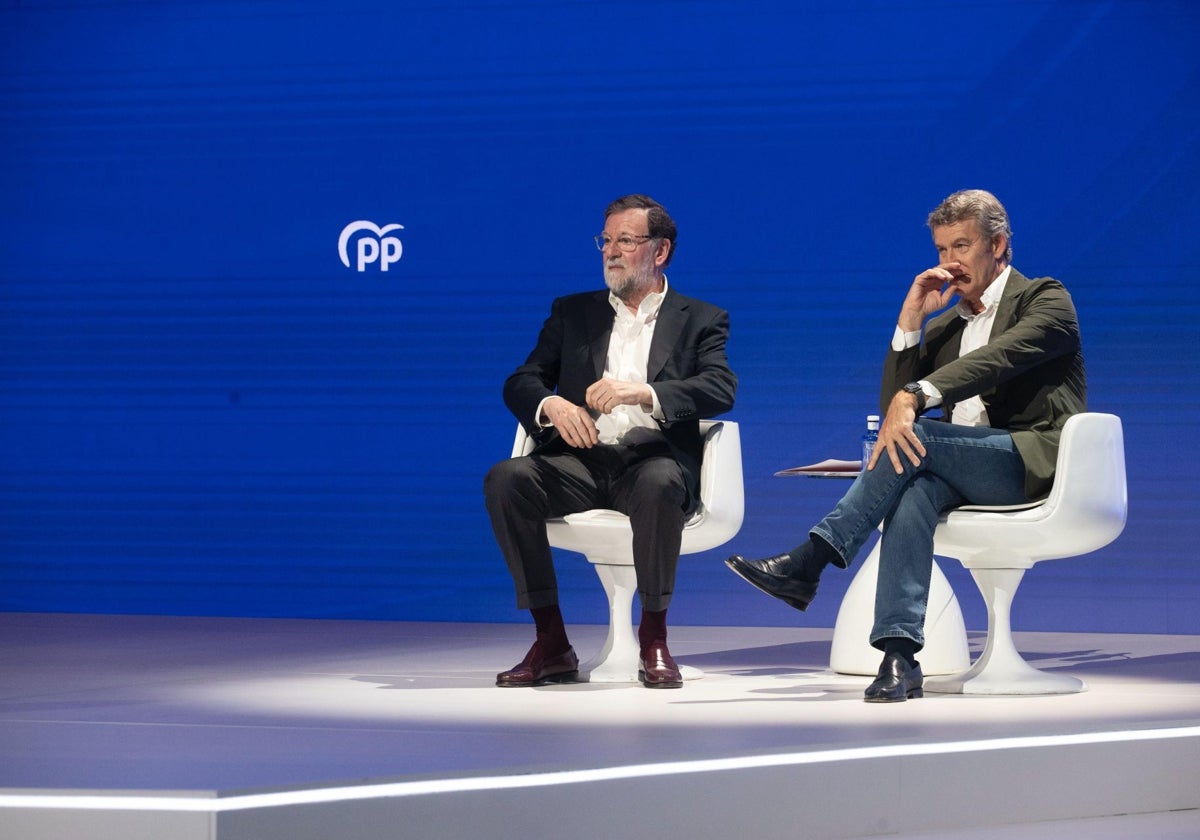He joins the harshest messages and accuses the PSOE of changing the regime through the back door.
Aznar asks that criminals leave their offices and go to jail.

Mariano Rajoy spoke at the PP's national congress as he has been accustomed to since leaving politics in 2018, when the motion of censure that ousted him from La Moncloa was successful: drawing laughter from those present and displaying wit from start to finish. In case anyone had any doubts - it was difficult - he gave his absolute support to Alberto Núñez Feijóo, to whom he gave the highest possible praise with all the regional barons in the front row: He embodies what this party is all about better than anyone.
After reviewing the party's electoral successes over the last three years and claiming the PP as one of the most solid representatives of the center-right in Europe, he launched into a settlement of scores with Pedro Sánchez : The political situation in Spain is very bad, especially those who brought us here know it. And you only have to see the faces they've been wearing lately, he warned. Rajoy asserted that we've seen everything, things we couldn't imagine, crazy things. And he continued: They all start from the same origin: whoever lost the elections was determined to stay in power in exchange for constant blackmail .
The message to Sánchez was very clear: I told him in 2018 that to give lessons, you have to be very confident. If not, it's best to keep quiet. They're not here today nor were they then to give lessons, he reproached the Prime Minister, who has boundless ambition.
Rajoy couldn't help but refer to the Leire Díez case:"We've never seen a prominent socialist leader supported by the Secretary of Organization creating a syndicate of interests to organize smear campaigns against judges, prosecutors, and civil guards. It's mind-boggling. There's no known precedent for anything like this," he said.
Addressing all the PP officials, whom he entrusted with rebuilding public morale in view of the current situation, he attacked the Government, accusing it of toughening laws against judicial independence and responding to the attacks that the PSOE so often repeats against the PP: The difference is that some of us act against corruption and others do so against judges, prosecutors and civil guards, he concluded.
This isn't about creating a new Sanchismo with a PP logo, said the former president, insisting on the change to come. Spanish democracy must return to that exemplary democracy, he reiterated to the ranks of the People's Party, who were devoted to the day's speakers. He had been preceded by José María Aznar.
Spain has no budget, nor elections. And the only thing that matters is that the right doesn't come. They're entrenched, desperate, trying to delay the inevitable. And that day will be the day everyone goes home, he warned in another message to Sánchez. He didn't hesitate to attack Félix Bolaños' judicial reforms, nor the arguments oft-repeated by the government to defend the amnesty law:"There are those who think that democracy is about voting and enjoying a kind of unlimited license to govern. But winning power only empowers you to govern. It's not useful for seizing institutions or changing the regime through the back door," he concluded.
He also had some very harsh words for the Constitutional Court:"It's not about adding fuel to the fire, but rather about not remaining silent when decisions go against the general interest. And this decision is a truly unprecedented change in the Constitution," he emphasized, anticipating that the amnesty has paved the way for another ruling that would allow for a referendum."Why not?" he asked.

